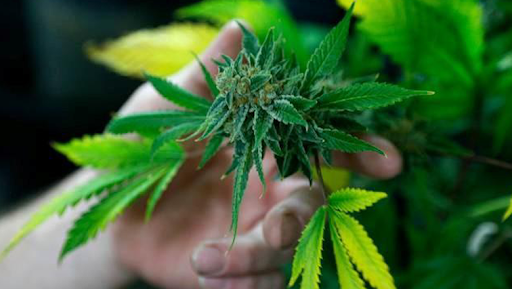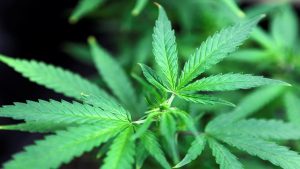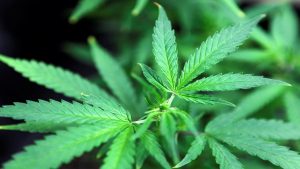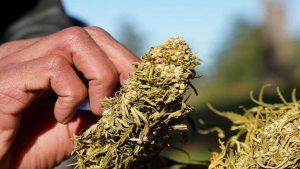Recent changes in legislation which decriminalise cannabis use for adults in South Africa, have proven challenging for companies conducting drug-screening in the workplace.
Cannabis can be detected for up to four weeks by standard urine tests – the type most often used in a work environment. These tests, however, do not tell when the substance was used or whether the employee is impaired at the time of the test.
“I use cannabis products for assisting in pain management. I homegrow and smoke buds from the cannabis plant as well as CBD oil drops,” says one woman.
Despite the decriminalisation of cannabis, this woman remains concerned about what may happen if her employers decide to test her.
“It may affect what my employers think of me and my performance. I’m also concerned that it will impact my employment with the company as there is still a stigma with the use of cannabis products.”
Director of the labour consultancy firm, Labour Amplified, Jahni de Villiers says there are instances where personal cannabis use can be held against employees.
“If you use cannabis in the morning before you come to work, you are using that in your private time because you’re using that at home. But if that results in you being intoxicated in the workplace then an employer definitely can institute disciplinary action because your occupational health and safety legislation says very clearly that you cannot have a person in the workplace who is under the influence of a substance. Of any substance.”
She says regardless of the decriminalisation of cannabis, workplace policies and health and safety regulations remain applicable.
However, De Villiers says administering a drug-screening test from a local pharmacy is not enough.
“Cannabis testing is notoriously unreliable in the sense that cannabis can be detected in a person for 10 to 14 days after the person actually used it. But you definitely need to have a proper disciplinary inquiry, a proper investigation as to the circumstances. Did this person appear intoxicated? Did they operate heavy machinery and cause damage and did they test positive for cannabis? Because if you take all of those cumulatively, then it’s fair to institute a disciplinary action against a person.”
Head of forensic toxicology at the University of Pretoria, Professor Tim Laurens, says it’s important to have workplace policies that outline under what circumstances drug-testing will be administered, how the sample will be taken and what testing device will be used.
“Once a sample has been taken, a preliminary tests will be performed which gives you a yes or no answer, and there must be no decisive action based on this yes or no preliminary test result. There can be many other compounds in a human’s urine or oral fluid or saliva that can actually cross-react and cause a false positive test result. With the example of HIV medications and cannabis, that’s a typical example.”
Employees often find themselves under pressure to disclose their HIV-status in order to clear their name. This, says Laurens, is why confirmation tests must be performed by an accredited laboratory, and the results interpreted by a trained professional.
“That test result must go to the medical review officer, and not to the HR person, please. The HR person isn’t qualified to interpret these test results. So, once the medical review officer has evaluated the test results it will be given through to HR and only then decisive action may take place.”
Lourens says unlike screening tests, the confirmation test does not just give a positive or negative answer, but rather looks at the concentration of compounds in the sample, which can indicate how recently the substance was used.
Unfortunately, he adds, while South Africa has established thresholds that regulate the legal limit of alcohol in a person’s system, no such limits exist for cannabis.
“So, the word ‘under the influence’ is still applicable in our road traffic act as well, but there should be a threshold symbol. So, I hope that they will start crafting this legislation. Because we have different levels of impairment and the end result is intoxication. How do you define intoxicated? That is a really grey area.”
He says the concentration of cannabis in the test sample is a good indication of recent use, but it cannot predict the level of intoxication or impairment. This is why testing is just one stage of the inquiry.
De Villiers agrees.
“Every case needs to be looked at on its own merits. You can’t simply make a blanket rule that will be accepted in every single sector and every set of circumstances. You have to understand that your employees are human beings outside of the workplace and probably have a private life and they have things that they do outside of the workplace that they don’t necessarily bring to the workplace.”
She says one way to mitigate the risks is to have a voluntary disclosure programme with employees. Employers must also have comprehensive policies in place that are consistently applied, but employees must be cognisant of their responsibilities.






